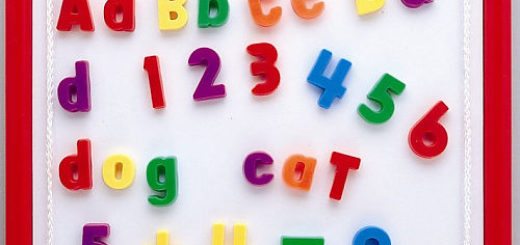Exclusive Interview with Mrs Gabrielle Solti, headmistress, South Hampstead Junior School
Mums In The Wood met the very capable and dignified, Mrs Gabrielle Solti, headmistress of South Hampstead Junior School, on 27th November 2017. She was very forthcoming and was clearly passionate about what she wanted for the girls under her care. A parent herself, she was very sympathetic and empathised with the anxiety parents feel, when they are competing for one of the much coveted places on offer at each different level in the school but was firm that the school has to suit the child and stressed that parents must bear in mind that this is what is most important for a child to be happy and thrive in a learning environment.
Mrs Solti, who hails from an illustrious, musical family of international acclaim, spoke fondly of how she had always in some part of her soul, wanted to teach. Although she started with teaching her dolls, she explored many different avenues before coming back to where her passion lay. She took on an internship at the European Commission, where she met her husband, she worked at Nestles in France and then in the UK and she learned a lot but she reminisced how she had never felt a sense of fulfilment and she did not feel she was making a difference, so she applied for a teaching training course. She laughingly mentioned that she put herself through much suffering in order to make sure that she was choosing the right path for herself. Her teaching career started at Trevor Roberts and after two years, decided that it was absolutely what she wanted and enrolled on a teacher training course at the Institute of Education. She talked fondly of her time in the State System having worked at Primrose Hill School where she became deputy head and talked about how demanding the role of a head teacher at a state school was. It was at this time she had a “serendipity moment” and having answered an advertisement, went on to Notting Hill and Ealing where she spent the next 10 years and felt completely at home. When she moved on to South Hampstead, she found a fantastic school, but identified that there was much she could still contribute to and develop. She looked into all aspects of the admissions process, for example, and has worked hard to ensure the girls have a relaxed and positive experience.
When asked about what she thought was the heart of the school, she was absolutely certain that the most important thing was the girls: “happy girls, enabled girls who have a voice and are able to speak for themselves”. One of the most important things, she said, was that “girls learn to communicate” and as such the school does not have a “put your hand up” kind of policy, but encourages girls to talk and voice their opinions while still respecting each other’s view points as well. She recounted reading a piece of research where girls were asked to draw a class for maths and the majority of girls drew themselves isolated. She added that she felt it was important for girls to work collaboratively and spoke of how the school encourages a growth mindset, helping girls develop resilience and teaches them to challenge themselves without feeling stifled. As such, the school encourages and follows a rich, broad curriculum with lots of opportunities, offers an extremely varied, enriching set of extra curricular activities. ” The essence of the school”, she said with pride, is that every girl experiences the “joy of learning”.
Question:
Having been at South Hampstead for 4 years now, what would you say are the main differences between a West London school like Notting Hill and Ealing junior school and a North London school like South Hampstead junior school? What, if any, were the main challenges you faced when you first came 4 years ago and how have you overcome them?
Answer:
Any school serves its community and therefore there will always be differences between one school and the other. However, both schools are sister schools of the Girls’ Day School Trust (GDST) and therefore share a commitment to the education of girls. I have been privileged to lead two schools where girls have been given the opportunity to have a fantastic start to their learning and achieve high academic standards – these are both schools where the child is always at the centre of everything we do. Staff care deeply about ensuring that every child is valued, happy, and encouraged to take risks as well as develop a range of interests.
When I started at South Hampstead, I was already taking over a very successful school from my predecessor, Christine Lough, who shared a very similar ethos to mine. Changes I made were to ensure the school was innovative and keeping up with the changes in education – for example, updating our curriculum as the government introduced a new national curriculum, introducing the concept of Growth Mindset to encourage girls to be more resilient as well as extending the provision in Music and Sports.
Question:
Do you think that the reputation of the school, as one of the most academic schools in the area and one that pushes girls to reach high academic standards above all else, is justified? Moreover, while many parents try very hard to get their children in to the school, quite a few parents also raise a lot of concerns about pastoral care for girls who may not end up being in the top set. What would you say to parents who have voiced these concerns?
Answer:
Although we are an academic school, girls will only be successful in their learning if they feel valued, safe and happy. It is particularly essential in the current age, where mental health concerns of young people are growing, that we ensure girls get the support they need. This might be helping a girl sort out a friendship problem, encouraging a girl to take more risks, ensuring that girls are not over-scheduled and having enough time to play…
As a Junior School, our girls are fortunate in that they do not have to sit the 11+ exam to move to the Senior School. This means that they don’t have the additional pressure in Year 6. They can continue to enjoy a wide range of activities, as well as a broad curriculum, all the way up to the end of their primary years. Just to clarify, we don’t set children in the Junior School. They are given extension or support as needed within their normal lessons. We know girls can be very sensitive at this age so we focus any feedback on what the child has done well and what they need to do to improve. We never give girls grades or assessment results in the Junior School; research has shown that children make far better progress if they focus on the improvement rather than a grade.
Question:
Has the school traditionally had a policy that favours winter borns over summer borns? Does this still exist and if so, to what extent does this bias affect the 4+ intake? Following on from that, is there a bias against girls who have applied, but have not been offered a place at 4+, re-applying at 7+ or later on at 11+?
Answer:
We don’t favour girls of any age. Our assessments take age into account and in every class we have children born throughout the year. We know that as we only have 24 places for entry at 4, each year we have to turn away many girls who we know would benefit from the educational offer we provide at South Hampstead. We are therefore delighted if parents re-apply at either 7+ or 11+; throughout the school we have girls who joined us at those ages, having not been offered a place at 4+.
Question:
What was the thinking behind having two rounds for a 4+ assessment instead of the usual one? What kind of personalities and ability levels does the school look for in prospective students?
Answer:
Most selective schools have two rounds to their assessment, so we are very much in line with other schools in this area. We are not looking for a particular personality type and have a whole range of types in the Junior School. We are looking for girls who will enjoy being challenged and can embrace a fast-moving curriculum.
Question:
With the applications to places ratio at almost 10 to 1 or perhaps even more, (currently known to be 250 applications for 24 places?), what would you say to parents who more and more, in an effort to beat the competition, are leaning towards tutoring 2 and 3 year olds in order to gain a competitive edge that will possibly lead to their children being offered one of the coveted places at South Hampstead?
Answer:
A school assessment is about identifying which girls will benefit from the type of education that particular school offers. It is not just about getting through the door but about identifying the school where your daughter will really flourish and continue to do so throughout both their primary and senior education. There is no such thing as the ‘best’ school – it is rather the one that suits your daughter and your family at that particular time. Children change and grow tremendously all the time. What we assess in our 4+ assessments are very much the sorts of activities parents and nurseries should be doing anyway. We don’t expect any ‘taught skills’ eg we certainly are not expecting any child to have started reading or writing at that age. If you put too much pressure on a child too early, learning becomes something that is hard work rather than a joy.
Question:
What is the new house system and what was it that led you to introduce it to the school? What benefits have you seen as a direct result of it being implemented?
Answer:
I introduced a House system at the end of my first year and it has now been in place for the last three years. It gives children a feeling of belonging beyond their class and year group, and the opportunity to take part in activities with girls from other year groups. Girls earn House points for attitude and learning in addition to special House activities, both sporting and academic. We have recently had House Public Speaking, with some points awarded for participation as well as winning. In addition, we have House Captains and Vice Captains, who are elected by their Houses, giving leadership opportunities to girls in Year 6.
Question:
How are complaints of bullying handled by the school? At what age do you feel this becomes more of an issue for the school to keep an eye on, in the junior school?
Answer:
One of the key pastoral themes in any Junior School is learning how to deal with others – particularly with friends as well as changing friendship groups. In most cases, these type of friendship problems arise where girls do not yet have the emotional vocabulary to resolve some of these issues. We give girls strategies to proactively sort out issues with friends – and they are supported by their teachers, if they can’t sort it out themselves. Bullying, where one girl has intentionally been unkind to another, is rarer. However where incidents do occur, we take this very seriously and have a clear anti-bullying policy which all the girls are aware of. Depending on the nature of the issue, the class teacher may involve me and we will talk to parents and take any further action as necessary.
Question:
Having taught at both co-educational schools and single sex schools, would you agree with the populist belief that co-education works better for boys than for girls?
Answer:
At South Hampstead, we tailor our provision to meet the needs of girls, both academically and pastorally. For example, we know it is essential to give girls opportunities to take risks in their academic work, to help them to be innovative, reason and solve problems confidently. We build this into our curriculum so girls, as they move through the school, learn to embrace open-ended challenges. It is essential that girls have the opportunity to find their voice, so we ensure we plan in opportunities at many levels: speaking in the classroom, presenting work in assembly and taking part in public speaking activities. Pastorally, we know the types of issues that occur for girls and can therefore tailor our teaching, as well as our support, to ensure we meet their needs. I believe that the education we provide enables girls to develop confidence to embrace the changing world they are growing up into. I personally believe that a single sex education can really meet the needs of boys and girls – my son attends a local single sex prep school and my daughter is at South Hampstead. However, ultimately, it is for each family to decide what is right for their child and what they feel most comfortable with.
Question:
What are your views on the increasing pressure put on children at the age of 4+ and 7+ to achieve and gain entry to very academic schools? Do you think the competition is driven more by parents who over tutor their children and so drive the standards of the exams higher each year or do you think the exam based system itself is what is driving children to strive harder each year? Furthermore, do you feel that the higher numbers applying at 7+ is down to the current complications associated with the 11+ exam
Answer:
Parents are understandably anxious to identify the right school for their children. However, I know that at South Hampstead, and other schools in this area, we work very hard to keep the assessment process as low key as possible. At South Hampstead, we ensure that the 7+ assessment is based on what the girls should be learning at school at that point; at the second round, we look closely at each child to identify potential. We have certainly not made the exam harder and, if anything, we have reduced the difficulty, particularly in maths in the last few years as we are very conscious of not expecting more than what the children should be taught at that age. I am always very clear with parents applying for a 7+ place what they can do to support their daughter with the assessment.
Question:
What provision does the school have for children who need extra help and for children who may need to be extended? At what age is setting in Math and English introduced?
Answer:
As mentioned earlier, we have no setting in the Junior School. Setting does not take place until the Senior School. We ensure that in all lessons, there is plenty of extension activity. Girls who need extra help receive it from their teacher and also benefit from additional support groups in the subject where they are having a bit of difficulty. Our aim is to support all girls to access our curriculum and achieve high standards.
Question:
How involved is the school in the local community? Do the girls get involved in any community based projects that are set up to help the local community or the local state schools?
Answer:
The school as a whole is very active with the local community. The school’s charity and community work is driven by a team of Sixth Formers, and supported by pupil representatives across the school. They work with teachers, staff, students and parents to raise awareness of important causes, both local and international, as well as backing initiatives through activities and fundraising.
In the Junior School, we have performed at a local old people’s home, supported families in a local homeless hostel and homeless people living in Camden. In terms of outreach, we often invite our local state schools to join us when we have author talks, for example, and have organised training for teachers with staff from local state schools.
Question:
Does the school have a very active parent body? What level of involvement is expected from parents?
Answer:
We expect all parents to support their daughters, for example, with their reading, supervising their homework, liaising with us etc. We recognise that many parents are working and therefore schedule events to suit working parents as much as possible. The community is very important at South Hampstead and every parent is a member of the PTA which organises whole school events, talks for parents as well as events for each year group. In addition, parents support us on trips and come in and talk to girls about a whole range of subjects. We believe that connections between parents and the school supports everybody. However parents may of course take part as much or as little as they wish.
Conclusions:
Although I was officially visiting the Junior School, I was also shown around the senior school by a very grounded and clearly exceptional Sixth Form student, who has been a South Hampstead since the Junior School. Having toured the incredibly impressive senior school which houses entire floors dedicated to subjects, walls decorated with inspirational quotes and photographs of female mathematicians, scientists and other hugely influential and powerful women, glass doored classrooms called pods for 6th formers, roof gardens and yoga spaces and then having moved on to the junior school with a variety of play equipment, swivel chairs and wonderful art by talented young students, there is little if nothing to fault and much to admire and be impressed by.
There is in fact, so much to write that I wish I had space for but it will have to wait for another article on the Senior School later on. The Junior School girls who showed me around were wonderfully confident and articulate even though it was their first time showing a visitor around.
The school has a reputation for being a “hot house”, however, it is becoming more and more apparent, that the term is being loosely used and not deserved in the case of many of the schools it is applied to, including South Hampstead. It should perhaps be mentioned that while the school has suffered from a reputation that wasn’t complimentary in the past, much has changed since then and currently, South Hampstead is very much a school that challenges, stimulates, academically motivates and sends out passionate, intelligent, bright girls into the world. A school where the girls are fully supported with onsite counsellors, SENCOs and teachers who are trained to spot and help identify any areas a child may need help with and one that places a great deal of importance on pastoral care, mental health and building resilience, under its current headship. There is no setting of children in the junior school nor are the girls graded. South Hampstead is, under Mrs Solti’s guidance, looking at introducing children to an ethos of always bettering themselves for their own advancement, giving children the freedom to choose and nurturing the strengths of each child and helping them achieve their potential. The reports sent to parents don’t include results, but focus on the strengths of each child, as well as what they can do to improve. The older girls are encouraged to start and run clubs for the younger ones, to think outside the box and develop creative ways of thinking about issues and solving problems.
The “Open Homework” policy is excellent and is done in a way to encourage the girls to come up with their own interpretations of a given topic. For e.g. The topic “School” encouraged one, creative child to do a presentation on a “school of fish”. Another topic, “1950s” encouraged children to cover anything from shoes and fashion to politics and art.
Contrary to popular belief, there isn’t an unmanageable amount of homework either, with Year 3s getting a little bit of reading, math and spelling every night to Year 6 spending around 45 minutes a night. The school is more focused on preparing children for greater independent learning and helping children to understand the value of revising what is taught in classrooms.
The school also has an open door policy for parents and all parents are given direct email addresses for the teachers. The school also has open lessons once every half term when parents are invited in to go through the children’s books and are given a summary of the children’s learning journeys.
So our conclusions? South Hampstead is absolutely an academic school, but it is also a school that seems to have struck a good balance for the right kind of child. There is no gifted and talented provision simply because all the girls are bright and work well in the fast paced environment. The school provides amazing facilities and experiences with residential trips and a broad, rich curriculum. There are an enviable array of clubs and extra curricular activities and the girls are taught from a young age to be confident, speak up and to use a popular word at the school, feel “empowered”. We were extremely impressed and would like to encourage parents to visit and speak to the very approachable Mrs Solti if they feel, their child is a good fit and would like to clarify any questions they may have. It really does have a great vibe and is clearly full of very enthusiastic, happy children.











